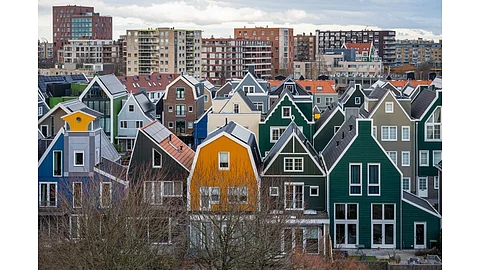

The solar net metering scheme for small-scale solar in the Netherlands is confirmed to be abolished from 2027
Local association Holland Solar has welcomed the decision saying it provides clarity to the market
It now demands stimulants to encourage self-consumption of solar power
The Netherlands’ House of Representatives Tweede Kamer has finally agreed to abolish the net metering scheme for small-scale users of solar panels in the country from 2027, thus providing much-needed clarity to the solar energy sector, according to a relieved trade body Holland Solar.
Notably, the Energy Ministry had recommended that the government to phase out the net metering scheme in the wake of module price decline as it stressed that the net metering was over-subsidizing solar installations. It was rejected by the Dutch Senate in March 2024. However, in May 2024, the coalition government agreed to accept the recommendation but wanted it to be phased out instead of being abolished in one go (see Netherlands Does Flip Flop On Solar Net Metering).
Under the Dutch net metering scheme, small-scale users of solar panels get to offset the electricity they feed to the grid against the electricity that they purchase. This scheme will now be abolished.
Welcoming the Tweede Kamer decision, Holland Solar said, “The political discussion on this subject has lasted more than 10 years and is now coming to an end. The political ping-pong has never been good for the solar energy sector. The fact that there is finally clarity gives companies in our sector peace of mind.”
The association now wants the government to stimulate self-consumption of solar power as the next chapter in the energy transition in which the Energy Minister has shown interest.
Pointing to the fact that the solutions to increase self-consumption of solar power, such as home batteries, solar power boilers, charging stations, heat pumps and other such smart devices are not accessible to all consumers, Holland Solar wants the administration to reform the country’s Sustainable Energy Investment Subsidy (ISDE) scheme with the addition of a flex bonus.
It describes this bonus as a ‘stack subsidy’ that rewards the purchase of solar panels with a measure to increase self-consumption and standardizes devices on their controllability.
At the end of 2023, the Netherlands had installed over 24 GW of solar PV capacity with the addition of 4.82 GW during the year with residential solar being the driving force of solar energy growth in the country (see Netherlands Installed 4.82 GW New Solar Capacity In 2023).
